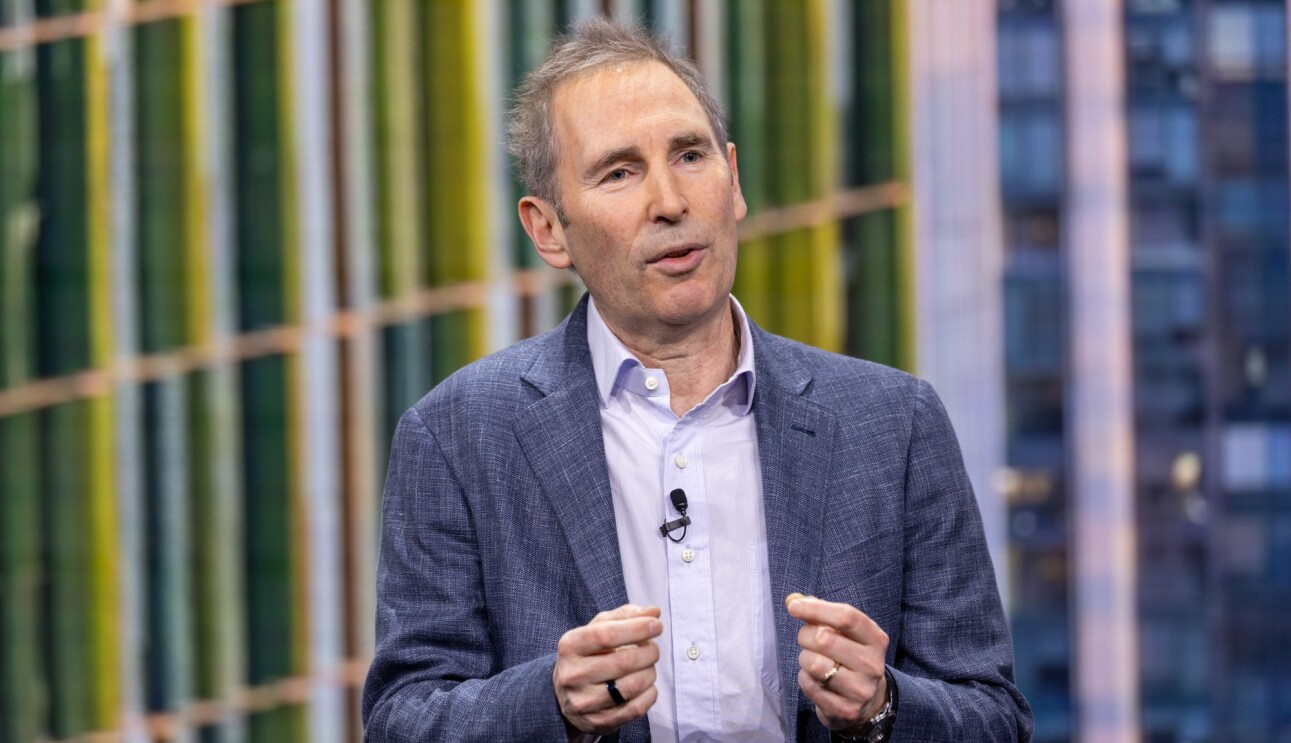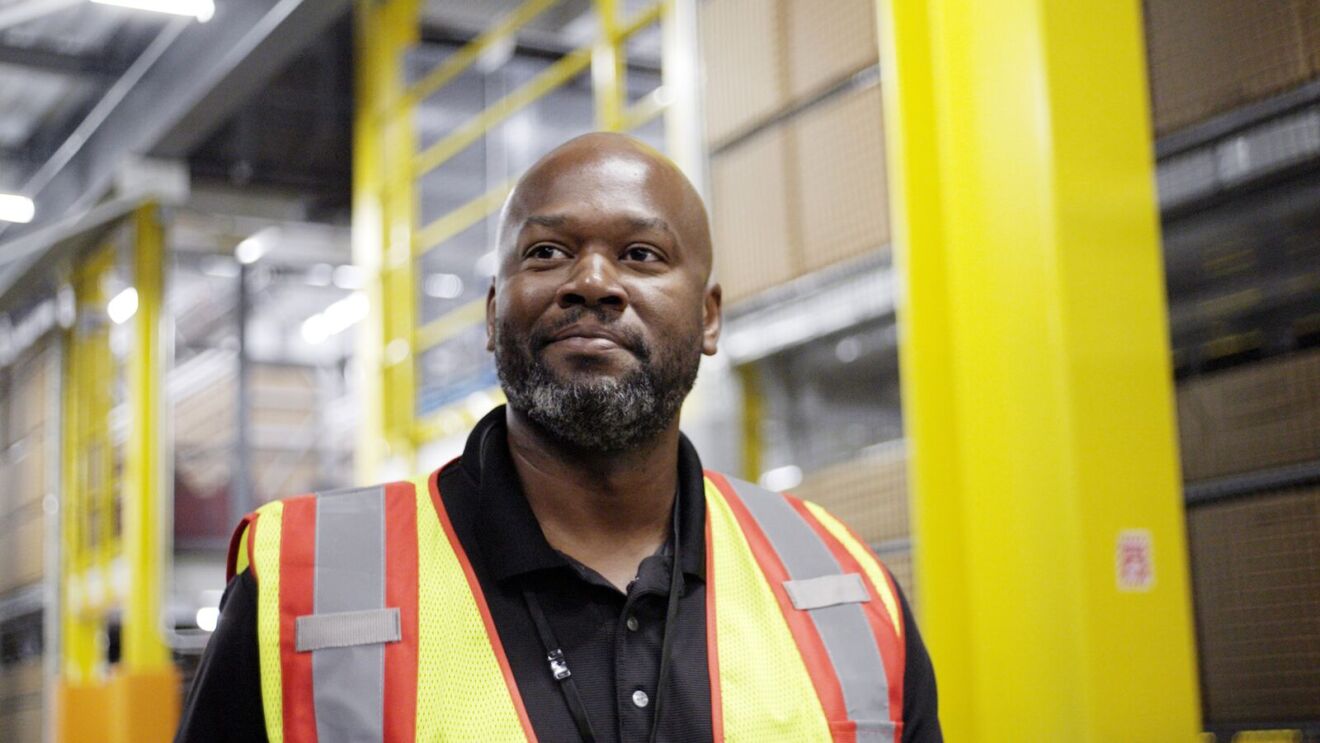Teresa Carlson is the leader of Amazon Web Services’ worldwide public sector business and is a champion of diversity and inclusion, helping to launch the company’s ‘We Power Tech’ initiative to encourage underrepresented communities in the technology industry.
Raised in Kentucky, United States, Teresa Carlson holds a Masters of Science degree in Speech and Language Pathology. She specialized in neurological and cognitive communication disorders, before moving into information technology.
What was your first day like at AWS?
In a word: Exciting. But also, a little chaotic. Not long after I met Andy Jassy, we had a mind-meld on changing the way the public sector could utilize information technology. That kind of did it for me. I didn’t know where it was going to go, but I could see Andy had such a clear vision and was as passionate as I was about helping public sector customers use AWS to pave the way for digital transformation and help build a better world. My first day on the job was chaotic, however, because there was no playbook already written about turning this vision into reality. So we started from scratch and worked backwards from our customers to start delivering results. I’m so proud of what we’ve achieved, and I’m still excited, because we have so much more left to do.
Which living person do you most admire?
My mom. It’s her whole attitude to life, to people. She turned 90 in February. She was a teacher and a high-school principal, she volunteered for years in the community. As an example, she worked for many election campaigns and was passionate about her church activities (and still is!). If I can be a third of as good a person as her, I’ll be happy.
What is your greatest fear?
I don’t live fearfully. That’s probably not always a good thing! I am scared at the thought of skydiving though. I think once I was out there, I’d be fine, but I’d need a push.
In your mind, what is the single greatest innovation in history?
Electricity, initially, because it revolutionized the way the world works. But I believe cloud computing will truly go down as the next greatest. It’s fundamentally changing all aspects of our lives and disrupting so many industries. People are only just beginning to understand its power. From accelerating scientific research, to advancing medicine, transportation, intelligence, health, media, and so on. The possibilities are endless.
What is your current state of mind?
Super positive. Not a day goes by when I don’t have a spring in my step. I’m blessed to have an amazing set of leaders that work for me, and team members around the world that are passionate about truly making a difference. There’s so much to do and we’re just getting started.
What is one thing you do every week to stay focused on customer needs?
It’s something I do every day: exercise. I don’t have a lot of time to myself and exercise keeps me balanced. If I’m balanced, I’m focused. Staying fit and healthy helps me be a better leader for my team and allows me to really concentrate on our customers. Right now I’m really energized by a new class called Core Power Sculpt. It’s a combination of hot yoga, sculpting, and cardio moves. It’s a great workout.
You said in a recent interview that technology alone won’t drive true change. What did you mean?
Obviously I’m a huge believer in technology, but change is driven by a business or mission need – and a strong leader who champions a solution. I always start by asking customers what are they trying to achieve? What challenges are they facing? Ninety-nine percent of the time they are not going to mention technology. They’re going to tell you about a problem they’re trying to solve. When we have the definition of that problem, we can work backwards to examine what technology we have, or need to create, to offer a solution. It’s talking about the art of the possible.
What publications do you read to stay current with external trends?
The Washington Post, Financial Times, and The Economist are my favorites. Beyond that, I’m constantly scanning various news feeds on my phone.
Which words or phrases do you most overuse?
“Whack-a-mole.” In every country, the same challenges pop up again and again when encouraging wide scale adoption of the cloud.
What, or who, is the greatest love of your life?
My two sons, Tyler and Elliot. It’s hard to put into words what they’ve added to my life.
When and where were you the happiest?
I get fulfillment from many aspects of my life. For example, I get so energized when I’m with my customers and hear their stories of success. It’s what drives me, knowing we’ve really helped them and made their world better through innovation. It’s very fulfilling.
When was the last time you were wrong about something?
Yesterday. I was insisting to my cab driver that one of my bags would not fit in the trunk. He was convinced otherwise. He was right.
Which talent would you most like to have?
To be multilingual because, as a leader of a worldwide business, I am working every day with customers who speak different languages and are immersed in different cultures. I lived in Germany for five years, and I learned some German, but it’s so-so. I grew up in a very small town and learning languages wasn’t really something people did.
If you could change one thing about yourself, what would it be?
As a southern girl at heart, there is nothing better than sweets! I love a homemade pie or a strawberry cupcake from Baked & Wired – a favorite bakery of mine in Washington, DC. Passing by without stopping to grab one is a challenge I’m still working on.
What do you consider your greatest achievement?
First and foremost, it’s my children. I will also say my career in its entirety. And not in terms of, “Oh I’ve been successful,” but in the impact I’ve had on my customers. My best moments have been when we’ve really been able to enhance the way the public sector is working: from governments, to education systems, to how non-profits deliver their missions. When I stop and think about that, it feels amazing.
Does your background in Speech-Language Pathology influence your work today?
Without a doubt. I worked with everyone from young children who had learning and articulation disabilities, to teenagers with head injuries, and adults who’d had strokes. Surprising as it may sound, it’s helped me a lot in business. You can’t understand communication disorders unless you understand ‘normal’ communication patterns first. So I’m very tuned in to body language, and contextual cues - the way people say what they are saying. You can tell so much about a customer, a partner, a member of your team, from their communication style.
What do you consider the most overrated virtue?
A lot of people have great ideas but are afraid to speak up. I encourage everyone to have a voice and not to be too deferential because they think someone’s more intelligent than them, or better at articulating something. I see this with many individuals who are new to Amazon, and trying to figure out the culture. They don’t jump in, and I want them to. There’s a way of doing it smartly.
If you were to die and come back as a person or thing, what would it be?
It’s not so much what, but when. I would come back in the 1940s or 50s, for the simple reason that I love the elegance of the fashion from that era.
Where would you most like to live?
I can’t say one place. I’m a city and a country person. The ‘city me’ says London, or Washington D.C., where I already live. The ‘country me’ says either a big horse farm in Kentucky, where I grew up, or the countryside in Spain - it’s such a beautiful and unique place in the world.
What is your most treasured possession?
A set of pearls my mom gave me when I was 16.
What’s the best piece of advice you have received at Amazon?
It was from Jeff Blackburn. He said, for the first six months, listen, observe and take time to get to know the culture. It’s different to anywhere else and you need to absorb that first. It’s hard for me not to have an opinion, or to want to talk, but I learned a lot by listening and observing.
What is your favorite Leadership Principle and why?
I love them all but two really stand out. I like Think Big for many reasons. Amazon lets you not just think big, but bring big ideas to the table and act on them. I think my business is an example of that. In addition, our Think Big leadership principle mirrors our public sector customers, who regularly do big things like sending a rover to Mars or advancing cancer research. The second leadership principle is Ownership. As a leader, something I really try to demonstrate is that we all have to be CEOs of our area. It’s vital, when you’re moving as fast as we are, to step up and be an owner.
What is the best piece of advice you give to fellow Amazonians?
If it’s someone new to Amazon, I give the same advice I received: listen, learn, observe and then jump in. This is what I mean by doing it smartly. After people have been here a while, I encourage them to come up with big ideas that can help the business grow. One of my favorite phrases is “find a hole and fill it.” If you see something that needs doing, don’t wait for someone else. Do it yourself and then own it as a mechanism you have created. It goes back to the Leadership Principle again.
What is the last thing you purchased on Amazon?
A variety pack of ONE protein bars. They’re best sellers, apparently.
Trending news and stories
- Amazon Leo mission updates: Amazon’s first mission with Arianespace set for February 12
- How to stream 'Young Sherlock’ March 4 on Prime Video
- Watch the trailer for ‘Mercy' starring Chris Pratt, out now in theaters from Amazon MGM Studios
- Amazon MGM Studios' 'Melania' earns $7 million its opening weekend









